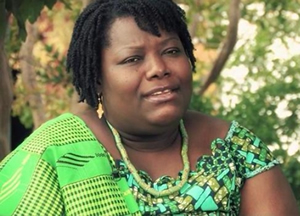
Nana Oye Lithur – Minister for Gender & Social Protection
Ghana is to mark the International Human Rights Day with a national dialogue on the plight of older females, children with disabilities and persons with mental health problems for merely being accused of witchcraft.
The National dialogue seeks to create a platform for structured and informed discussions on the customs surrounding witchcraft accusations; the gender perspective, and also to draw attention to the fact that the problem disproportionately affects women.
The dialogue to mark International Human Rights day is being organized by the Ministry of Gender, Children and Social Protection on the theme: “Protecting the Vulnerable: Witchcraft Accusations and Human Rights Abuse in Ghana”.
In an interview with the Ghana News Agency in Accra on Tuesday, Nana Oye Lithur, Minister of Gender, Children and Social Protection explained that Ghana intends to use the Human Rights day to deepen national attention on the issue.
“We need to get greater understanding of the problem and garner public support and action in discontinuing the practice.
“It will also be an opportunity for key stakeholders to propose tangibles cross disciplinary recommendations to ending the practice in Ghana,” she said.
Nana Oye Lithur explained that the phenomenon of women being accused of witchcraft still exists across the country with the worse hit being the Northern, Upper East and Upper West Regions.
She said currently, a total of six alleged witch camps are located in five Districts in the Northern Region: Kukuo, Gnani-Tindang, Gambaga, Bonyase, Tindan-zhie (Kpatinga) and Nabuli in Nanumba South, Yendi, East Mamprusi, Central Gonja and Gushegu Districts respectively.
The Gender Minister noted that allegations of witchcraft is highly gendered, with older females, widows, childless or unmarried women bearing the brunt of the scourge due to strongly-held customary beliefs about such women not meeting certain gender stereotypes.
She commended both governmental and non-governmental institutions for interventions aimed at awareness-raising programmes on the witches’ camps and their harmful effects on women.
The institutions includes; the National Commission for Civic Education (NCCE) which conducted a comprehensive Research on the witches camps; ActionAid-Ghana which has develop a Roadmap on eliminating the witch camps and the Go Home Project of the Presbyterian Church of Ghana.
Nana Oye Lithur said the Ministry of Gender is studying a road-map to determine how best to strengthen the collaboration and collective efforts towards removing the camps.
The Ministry is thus working with the partners to close down at least one camp before the close of the year.
“As part of our effort to leverage and improve upon the living conditions of alleged witches, steps have been taken by MoGCSP; these include giving cash transfers under LEAP to the inmates of the witches’ camp.
“Together with the Ghana Health Service, MoGCSP provides basic needs such as food, potable water, sleeping arrangements (re-roofing of huts) and medical screening. This is to ensure their protection and basic health needs,” Nana Oye Lithur said.
She noted that the “Lordina Foundation,” is constructing a vocational Skills Training Institute for the Gambaga Witchcamp and its surrounding communities.
“Notwithstanding all this effort, MoGCSP is working progressively on reintegrating the alleged witches in their home villages. This process is more sustainable and promotes the rights of the women to live freely,” she said.
Nana Oye Lithur commended the media for being instrumental in educating the public about the situations of the women in the witch camps.
The UN General Assembly proclaimed December 10, as Human Rights Day in 1950, to bring to the attention ‘of the peoples of the world’ the Universal Declaration of Human Rights as the common standard of achievement for all peoples and all nations.
This year’s slogan, “Human Rights 365,” encompasses the idea that every day is Human Rights Day.
The formal establishment of Human Rights Day occurred at the 317th Plenary Meeting of the General Assembly on December 4, 1950, when the General Assembly declared resolution 423(V), inviting all member states and any other interested organizations to celebrate the day as they saw fit.
Source: GNA























